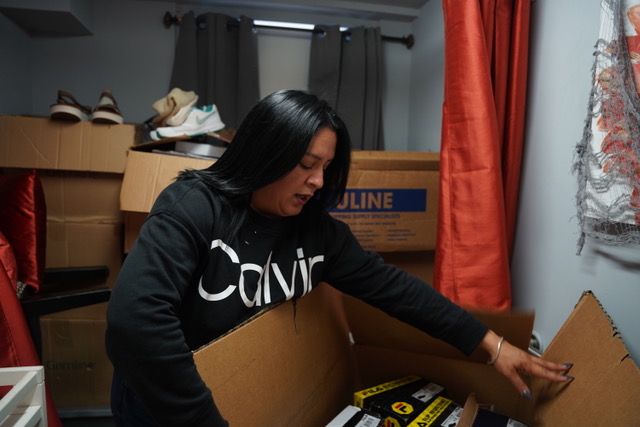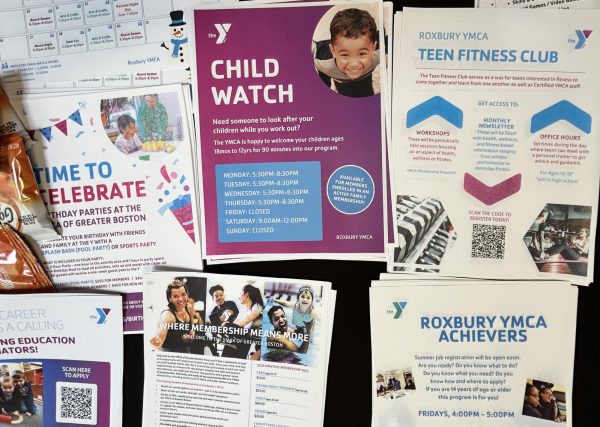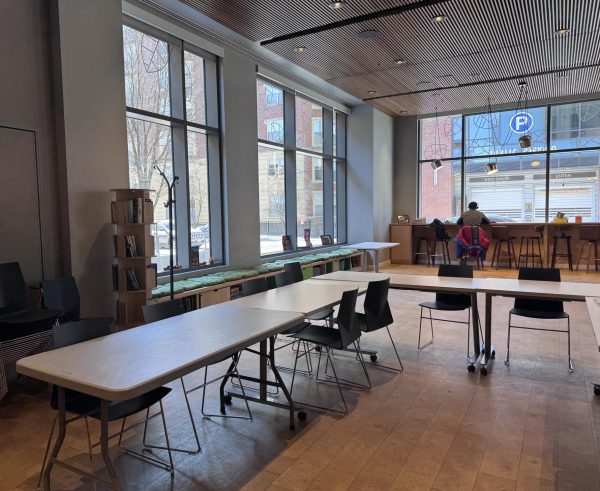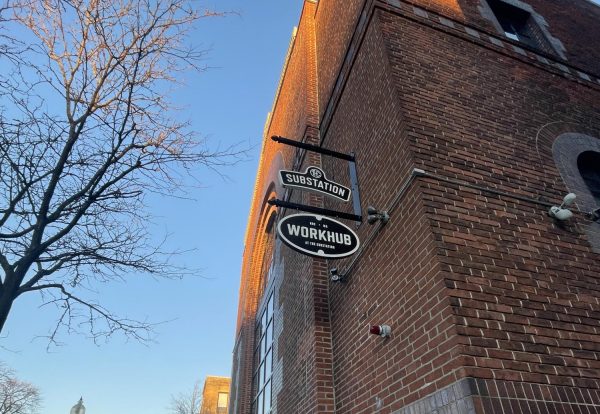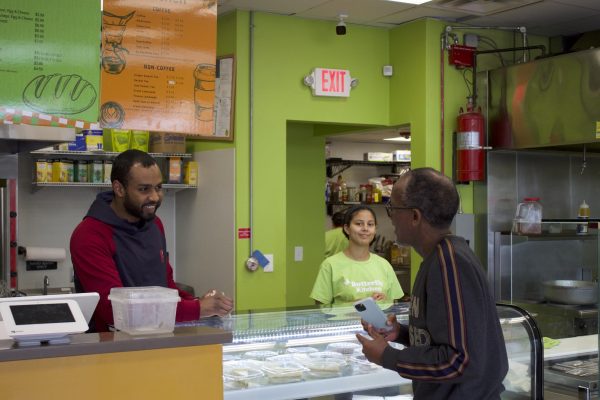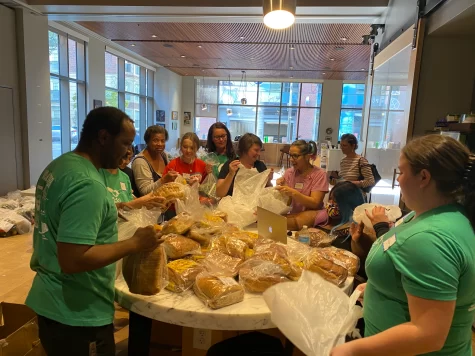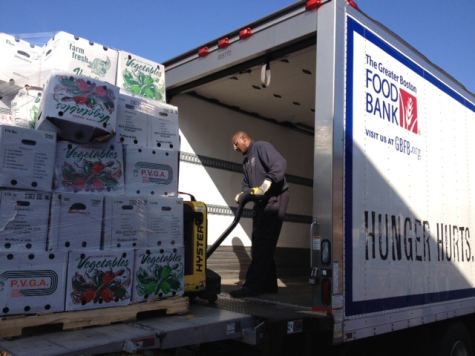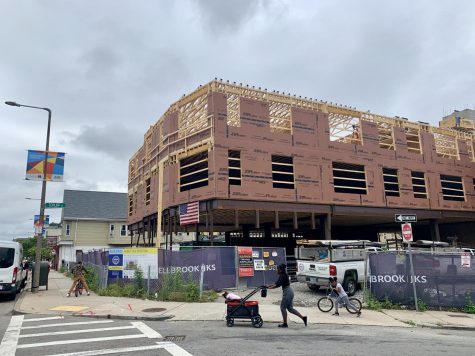Tree of Life calls attention to food insecurity among pet owners
“We found that a lot of families were not getting food for their household in order to feed their pets.”
Photo: Isabella LoNigro
Through her work at Tree of Life in Jamaica Plain, Carol Miranda has dedicated her career to ensuring her community gets the support it needs. Sometimes this means diapers for newborns, sometimes suits for court hearings, and sometimes food for pets.
Over the past five years, it came to Miranda’s attention that people in her community were choosing between feeding themselves and feeding their pets. Because of economic hardships, a worsening economy, and, in some cases, fear of deportation or discrimination, people weren’t getting the care their pets need. Miranda knew that Tree of Life could do more to support people and their pets. This is why she added vaccine clinics and a pet food pantry to the long list of things that Tree of Life offers.
“We found that a lot of families were not getting food for their household in order to feed their pets,” she said. They would tell us, ‘I didn’t buy food this week because my cat needed this or my dog needed that.’”
Miranda grew up in Southbridge, Massachusetts, and spent the beginning of her career working in Cambridge. After 12 years living and working in Jamaica Plain as the director at Tree of Life, she says the community considers her to be one of their own.
Miranda spoke with The Scope about her role at Tree of Life, the pet vaccine clinics, pet food pantry services, and other ways she’s working to support her community. The following conversation has been edited for length and clarity.
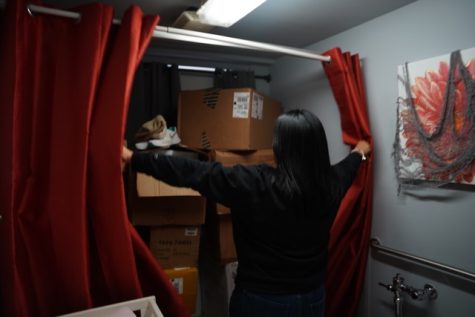
What does a typical day in your role look like?
I’m never in my office. I find that you can’t meet people if you’re not outside, engaging in an activity or an event. I walk up to people and say hey, you know that we’re right around the corner. Do you have children? Do you have pets? Do you need food, or do you want to volunteer? If someone needs something, I say if I don’t have it, let me see what I can do. But I always have something. Whether it’s food, whether it’s clothing for children and adults. I will reach out to all the partners in the community with a simple email like “this is what we need.”
How did you know that people needed support in providing for their pets?
We heard what people were asking. What they were struggling with. When we meet folks, we do a very short intake, and we just say, “what are your needs”? And a lot of times, people (tell us about) their pets. They need food. They need care and proper hygiene. They need all the same things we need. Families were saying, listen, you know, cat food is so expensive, dog food is so expensive.
What kind of support is Tree of Life able to provide for pet care?
People that come here come get their pet food; they come to get their food; they come to get clothes. We’re doing some clinics that really help the community. I think the pet clinic is one of our favorite things that we’ve done because who would have thought to have free pet vaccines? And so now they’ve been doing it in different neighborhoods. I think this weekend is going to be in Hyde Park. It’s amazing.
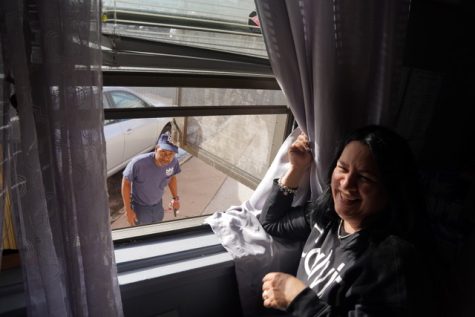
Tell us more about the vaccine clinics.
We set up the mobile van, the pet mobile. They set up tents with toys, beds, and crates. All this donated stuff from other places that will drop off (at MSPCA). They give free rabies and distemper vaccines, free microchips, free exams, and free pet food and supplies. Then there’s also the education piece that they have with the nurses on site and vets. They are able to let them know, hey, do you need to have your dog or cat neutered? Do they need nail trimming? I don’t think anybody else has been doing it. We know that some folks have been doing something in the past, and they were charging $5 for it, which is a reasonable amount. But there are people who don’t have $5.
What kind of situations can prevent people from getting care for their pets?
Maybe they’re afraid because they aren’t residents. Maybe they don’t have legal documents. We have people from all walks of life. We have people that are from corporate offices. Just because they have a high-paying job, does that mean that they can afford dog food? Maybe they can’t because maybe they’re paying a $4,000 mortgage, and they have to buy groceries, and they have their car. So they may need pet food. We get all types of people walking into the door, all cultures, all races.
Why is it important for people to have pets?
We need our pets. For comfort, for many reasons. Everybody might have a different reason. But in speaking to a lot of the families here, some of them live alone. Some of them need their pets as companions. They’re therapy dogs. There are a lot of elderly folks here that rely on their pets.
How do you use your role to better the community?
I take my whole life experience as something that people can learn from. I’m happy. I have my down days. I get burnt out. I have days where I want to scream that I want to take off. And then I say, you know, it’s okay ’cause I have feelings too. I’m not superwoman, even though everybody calls me that. I love working with families who think that they don’t have a voice in their community, that they don’t have a voice to make decisions, and that they don’t have a voice to advocate, and tell them, yes, you can.

